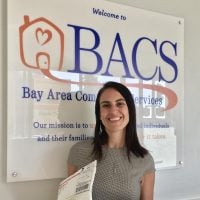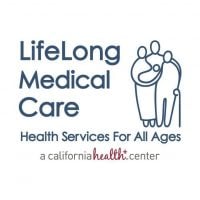Thunder Road - Chemical Dependency Recovery Hospital
Drug Rehab Center in Oakland, California
Thunder Road is a CARF-accredited chemical dependency recovery hospital in Oakland, CA that offers specialized treatment and care for individuals struggling with substance abuse, mental health issues, and opioid addiction through both inpatient and outpatient programs tailored to individual needs and dual diagnosis levels of care.
About This Oakland, CA Facility
Thunder Road – Chemical Dependency Recovery Hospital, located in Oakland, California, is a CARF-accredited substance use disorder rehab facility that provides specialized addiction treatment services to teens, adults, and seniors.
• Collaborative approach with Bay Area Community Services to support youth in their recovery journey
• Safe and supportive residential treatment program for youth struggling with substance use and co-occurring mental health disorders
• Transitional housing services to help youth and adults navigate the next steps of their recovery while developing essential life skills
Thunder Road's CARF accreditation demonstrates their commitment to providing high-quality, evidence-based care to individuals seeking recovery from substance use disorders. The facility offers a range of specialized services tailored to the unique needs of youth and adults.
The rehab center treats substance abuse, drug addiction, alcoholism, opioid addiction, and co-occurring mental health disorders. Treatment options include outpatient and inpatient services, individual and group therapy, life skills development, education support, and family involvement.
Genders
Ages
Modality
Additional
Accreditations

CARF
The Commission on Accreditation of Rehabilitation Facilities (CARF) is a non-profit organization that specifically accredits rehab organizations. Founded in 1966, CARF's, mission is to help service providers like rehab facilities maintain high standards of care.
Conditions and Issues Treated
Substance abuse refers to the intensive and inappropriate use of psychoactive substances. Psychoactive substances are those that affect brain function. These include illegal drugs, alcohol, and even the excessive use of prescription drugs. The overuse of psychoactive substances leads to severe physical or psychological dependence. It also affects the social life and relationships of the affected individual. Substance abuse is treatable.
The duration of treatment at Thunder Road - Chemical Dependency Recovery Hospital in Oakland can require weeks or even months depending on the severity of the condition as there is a risk of relapse. Treatment options include medications, counseling sessions, various types of behavioral therapy, and group therapy in different combinations.
Addiction to prescription opioid painkillers like oxycodone and hydrocodone, and illicit opioids such as heroin, leads to potentially life-threatening withdrawal symptoms when discontinued. Opioid addiction treatment typically involves an inpatient stay at facilities like Thunder Road - Chemical Dependency Recovery Hospital to make sure they get through withdrawal safely. Treatment also includes comprehensive mental health counseling.
Mental illness includes conditions such as anxiety, depression, schizophrenia, bipolar disorder. It can also happen that mental illness causes drug addiction and vice versa. Thunder Road - Chemical Dependency Recovery Hospital in California knows it is vital to diagnose dual diagnosis or co-occurring disorder.
Levels of Care Offered
This center offers a variety of custom treatment tailored to individual recovery. Currently available are Dual-Diagnosis, Inpatient, Outpatient, with additional therapies available as listed below.
Inpatient programs are intensive regimes that require individuals suffering from serious addictions to admit themselves into a controlled environment. Inpatient programs in California generally span over 28 days to six months. The first step in an inpatient program is medically assisted detox. Doctors and addiction specialists at Thunder Road - Chemical Dependency Recovery Hospital monitor the individual’s vital signs as the drugs leave their system. Some inpatient rehab programs also provide counseling for family members to provide encouragement and emotional support. In inpatient programs, patients have access to 24-hour medical supervision.
To assist with alcohol or opioid abuse, or a co-occurring condition, Thunder Road - Chemical Dependency Recovery Hospital offers an outpatient treatment program. For their rehabilitation and other services, the California patient will go to the treatment center, yet return home every night. After most of the program is completed, the level of mandatory participation reduces.
Thunder Road - Chemical Dependency Recovery Hospital‘s Therapies & Programs
In addiction recovery at Thunder Road - Chemical Dependency Recovery Hospital, therapy plays a significant role. This helps patients get to the root of their addiction and discover how the problems that contributed to their use can be handled better. Therapy can be performed in a group and one on one settings. The patient interacts with the therapist in a one-on-one atmosphere during individual therapy. This encourages them to reflect on the underlying addiction problems and develop ways to avoid potential future abuse.
Recovering from addiction involves recovering relationships as well. One of the most common areas of stress and damage during addiction is in intimate relationships. Couples therapy at Thunder Road - Chemical Dependency Recovery Hospital can rebuild trust and joy that may have been damaged. Addiction involves everyone in the family, not only the addict.
Family roles can change in damaging ways that may require professional help to rebalance. Successful intimate relationships can decrease the chances for relapse by ensuring a healthy environment after rehab in Oakland, CA.
Addiction and alcoholism affect the entire family. For this reason, family therapy is vital to a person’s recovery from addiction. In contrast to couples counseling, family therapy at Thunder Road - Chemical Dependency Recovery Hospital may include siblings, children, parents, and other significant people in the recovering person’s life. Family support is one of the most important pillars of recovery.
Many people turn to drugs and alcohol as a way of processing trauma that has affected them in the past. Trauma can include abuse, neglect, the loss of a loved one and other unpleasant incidents. Trauma therapy at Thunder Road - Chemical Dependency Recovery Hospital helps patients process trauma. It gives them the tools to deal with it in a healthier manner.
Dialectical behavioral therapy (DBT) is a type of Cognitive Behavioral Therapy that focuses on eliminating specific negative thoughts such as suicidal thoughts that can potentially lead to an individual inflicting self-harm. It is useful in the treatment of patients exhibiting uncontrollable emotions, intense mood swings, and borderline personality disorders.
The term “Dialectic” means the integration of opposites. In the substance abuse context, DBT refers to accepting the patient’s addiction and working to change their thoughts and behavior. It improves life skills such as controlling the intense emotions without reacting impulsively, resolving the interpersonal conflicts effectively, and promoting awareness about self and others.
Cognitive Behavioral Therapy (CBT) examines the relationship between a patient’s thoughts, feelings and behaviors. Thunder Road - Chemical Dependency Recovery Hospital aims to establish a healthy response to thoughts and feelings as an alternative to turning to drugs and alcohol. It also promotes healthy communication between addicts and those around them. It is and effective therapy for people suffering with all types of addictions.
Life skills pertain to the skill sets a person should possess to become successful in life. Examples are time management, budgeting, and social abilities. Life skills therapy highlights the fact that addiction recovery is more than just a person’s ability to go through their day-to-day without resorting to substance use in Oakland, CA once they leave the facility.
It’s no surprise that diet is a crucial player in one’s well-being. What an individual puts into his or her body becomes the fuel that drives the mental and physical faculties to perform accordingly. Therefore, nutrition therapy, also known as medical nutrition therapy (MNT), guarantees that an individual is providing his or her mind and body with proper nourishment.
The right diet can improve a person’s general outlook, sleep habits, and thought processing skills. MNT also lowers the occurrence of chronic diseases such as adult-onset diabetes. Dieticians at Thunder Road - Chemical Dependency Recovery Hospital in Oakland, California believe that nutrition therapy is the key to making significant lifestyle changes, especially when it comes to personal care.Nicotine Replacement Therapy (NRTC) used products like skin patches and gum to deliver nicotine into the bloodstream of people trying to quit smoking. This helps break the habits associated with smoking. The very low doses of nicotine managed by Thunder Road - Chemical Dependency Recovery Hospital prevent cravings while helping people make a gradual transition to complete smoking cessation.
Patient Experience
Experiential Therapy at Thunder Road - Chemical Dependency Recovery Hospital
Experential therapy is a unique type of therapy that deals with the subconscious mind. This treatment available at Thunder Road - Chemical Dependency Recovery Hospital in Oakland, CA encourages individuals to work out their issues with their inner self through synchronous experiences.
This non-traditional treatment method makes use of the physique and encourages people to take part in various physical and emotional activities, movements, and practices. Some of the most common examples of experiential therapy are equine therapy, music therapy, adventure therapy, and role playing. Through these various methods, an individual is believed to heal from trauma, negative emotions, and hurtful memories faster. Moreover, experiential therapy is known to have enduring results which can be beneficial to sufferers.
Payment Options Accepted
For specific insurance or payment methods please contact us.
Is your insurance accepted?
Ask an expert, call (888) 674-0062
Additional Details
Specifics, location, and helpful extra information.
Oakland, California 94609 Phone Number(510) 653-5040 Meta DetailsUpdated April 15, 2024
Staff Verified
Patient Reviews
There are no reviews yet. Be the first one to write one.
Oakland, California Addiction Information
More than 3 million of California's citizens are addicted to illegal drugs. Almost 800,000 people use hard drugs, almost 5 million use marijuana, and another 2.1 million abuse alcohol every year. Other substance abuse issues such as binge drinking and teen drug use are also common. Many illegal drugs such as cocaine, heroin, methamphetamine, and marijuana are smuggled into the state from Mexico.
Drug addiction is a serious problem in Oakland, California. There were over 1,000 drug-related arrests in Oakland in 2016. Additionally, over 9,000 people were admitted to local hospitals for drug abuse in 2016. Drug overdose is the leading cause of death for people under the age of 50 in the city. The most common type of drug treatment in Oakland is an outpatient program.
Treatment in Nearby Cities
- Santa Rosa, CA (49.0 mi.)
- El Centro, CA (513.7 mi.)
- Compton, CA (353.8 mi.)
- Turlock, CA (80.8 mi.)
- Rosemead, CA (349.4 mi.)
Centers near Thunder Road - Chemical Dependency Recovery Hospital
The facility name, logo and brand are the property and registered trademarks of Thunder Road - Chemical Dependency Recovery Hospital, and are being used for identification and informational purposes only. Use of these names, logos and brands shall not imply endorsement. RehabNow.org is not affiliated with or sponsored by Thunder Road - Chemical Dependency Recovery Hospital.




